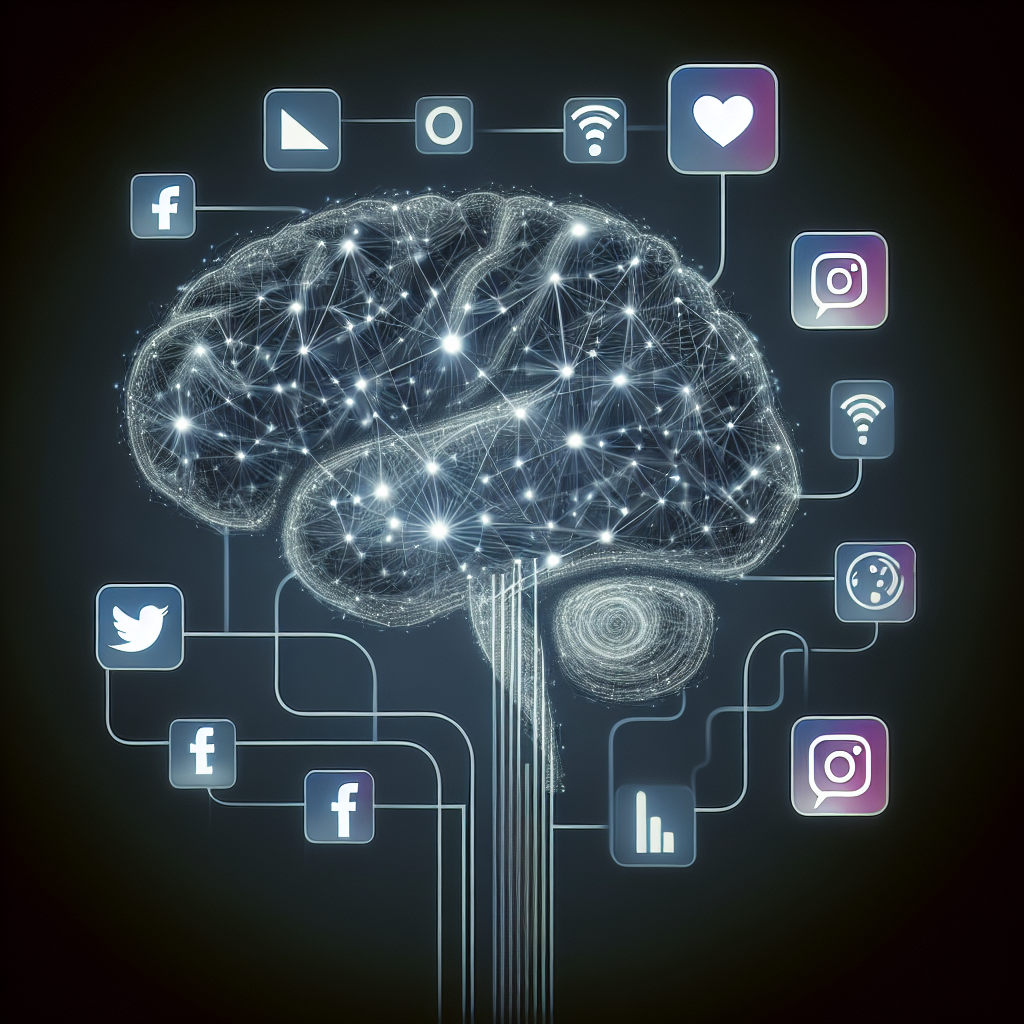In today’s digital age, social media has become an integral part of our daily lives. From connecting with friends and family to sharing photos and videos, social media platforms like Facebook, Instagram, and Twitter have revolutionized the way we communicate and interact with others. With the rise of artificial intelligence (AI), social media has also been transformed in ways that were once unimaginable.
The integration of AI in social media has opened up a whole new world of possibilities, from personalized advertising to automated customer service. But what is the psychology behind AI in social media? How does AI influence our behavior and emotions when we interact with these platforms? In this article, we will explore the psychology of AI in social media and its implications for our online experiences.
The Role of AI in Social Media
AI has become an essential tool for social media platforms to analyze user data and provide personalized experiences. Through machine learning algorithms, AI can track user behavior, preferences, and interactions to tailor content and recommendations to individual users. This level of personalization has revolutionized the way we engage with social media, making our online experiences more relevant and engaging.
One of the key ways AI is used in social media is through content curation. Platforms like Facebook and Instagram use AI algorithms to analyze user data and deliver personalized content based on our interests and preferences. This means that the content we see on our news feeds is curated specifically for us, increasing the likelihood of engagement and interaction.
AI is also used in social media for targeted advertising. By analyzing user data and behavior, AI can create highly targeted ads that are more likely to resonate with users. This level of personalization increases the effectiveness of advertising campaigns, leading to higher conversion rates and ROI for businesses.
Another important role of AI in social media is in content moderation. With the vast amount of content being posted on social media platforms every day, AI algorithms are used to detect and remove harmful or inappropriate content, such as hate speech, violence, and nudity. This helps create a safer and more positive online environment for users.
The Psychology of AI in Social Media
The integration of AI in social media has a profound impact on our psychology and behavior when we interact with these platforms. Here are some key ways in which AI influences our online experiences:
1. Personalization: AI algorithms analyze our behavior and preferences to deliver personalized content and recommendations. This level of personalization creates a sense of familiarity and relevance, increasing our engagement with social media platforms.
2. Dopamine-driven feedback loops: AI-powered features like likes, comments, and shares create a dopamine-driven feedback loop that reinforces our online behavior. The instant gratification we receive from these interactions encourages us to spend more time on social media, leading to addictive behavior.
3. Filter bubbles: AI algorithms curate our news feeds based on our interests and preferences, creating filter bubbles that limit our exposure to diverse perspectives and opinions. This can result in echo chambers where we are only exposed to information that reinforces our existing beliefs, leading to polarization and division.
4. Emotional manipulation: AI algorithms can analyze our emotional responses to content and tailor recommendations to evoke specific emotions, such as happiness, anger, or fear. This level of emotional manipulation can influence our mood and behavior when we interact with social media.
5. Privacy concerns: The data collected by AI algorithms in social media raises concerns about privacy and data security. Users may feel uncomfortable knowing that their personal information is being used to target them with personalized content and ads.
FAQs
1. How does AI influence our behavior on social media?
AI influences our behavior on social media by analyzing our preferences and interactions to deliver personalized content and recommendations. This level of personalization increases our engagement with social media platforms and can lead to addictive behavior.
2. Can AI manipulate our emotions on social media?
AI algorithms can analyze our emotional responses to content and tailor recommendations to evoke specific emotions. This level of emotional manipulation can influence our mood and behavior when we interact with social media.
3. What are the benefits of AI in social media?
AI in social media provides benefits such as personalized content, targeted advertising, content moderation, and improved user experiences. AI algorithms help create a safer and more engaging online environment for users.
4. What are the drawbacks of AI in social media?
The drawbacks of AI in social media include privacy concerns, filter bubbles, dopamine-driven feedback loops, and emotional manipulation. Users may feel uncomfortable knowing that their personal information is being used to target them with personalized content and ads.
5. How can we mitigate the negative effects of AI in social media?
To mitigate the negative effects of AI in social media, users can be more mindful of their online behavior, limit their time on social media, and diversify their sources of information. Platforms can also implement transparency and accountability measures to ensure ethical AI practices.
In conclusion, the psychology of AI in social media is a complex and multifaceted topic that has profound implications for our online experiences. From personalized content to emotional manipulation, AI algorithms play a significant role in shaping our behavior and emotions when we interact with social media platforms. By understanding the psychology behind AI in social media, we can better navigate the digital landscape and make informed choices about our online interactions.

